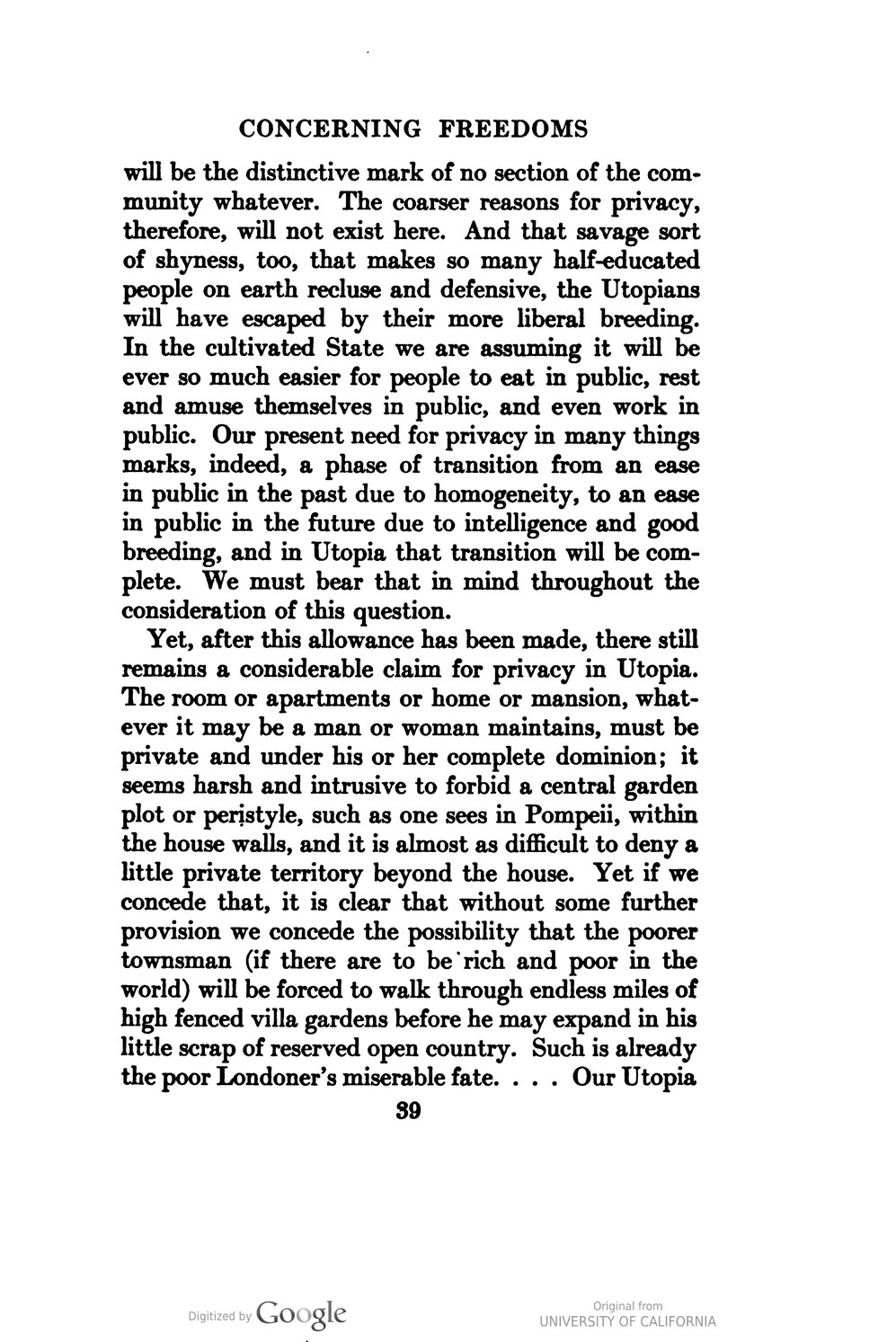CONCERNING FREEDOMS
will be the distinctive mark of no section of the community whatever. The coarser reasons for privacy, therefore, will not exist here. And that savage sort of shyness, too, that makes so many half-educated people on earth recluse and defensive, the Utopians will have escaped by their more liberal breeding. In the cultivated State we are assuming it will be ever so much easier for people to eat in public, rest and amuse themselves in public, and even work in public. Our present need for privacy in many things marks, indeed, a phase of transition from an ease in public in the past due to homogeneity, to an ease in public in the future due to intelligence and good breeding, and in Utopia that transition will be complete. We must bear that in mind throughout the consideration of this question.
Yet, after this allowance has been made, there still remains a considerable claim for privacy in Utopia. The room or apartments or home or mansion, whatever it may be a man or woman maintains, must be private and under his or her complete dominion; it seems harsh and intrusive to forbid a central garden plot or peristyle, such as one sees in Pompeii, within the house walls, and it is almost as difficult to deny a little private territory beyond the house. Yet if we concede that, it is clear that without some further provision we concede the possibility that the poorer townsman (if there are to be rich and poor in the world) will be forced to walk through endless miles of high fenced villa gardens before he may expand in his little scrap of reserved open country. Such is already the poor Londoner's miserable fate. . . . Our Utopia
39
